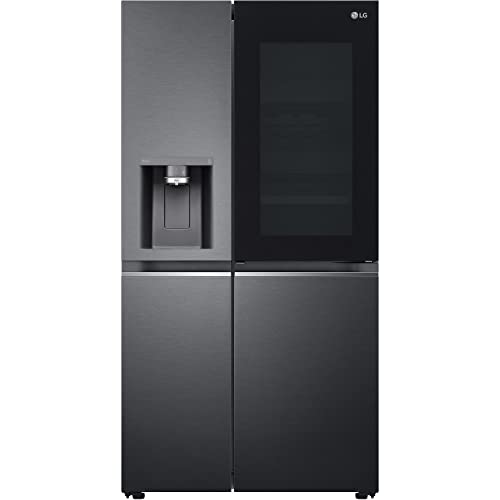15 Gifts For The Buy A Fridge Lover In Your Life
Where to Buy a Fridge: A Comprehensive Guide
Purchasing a refrigerator is a substantial choice due to its role as one of the most vital appliances in the home. Refrigerators are available in different sizes, styles, and rate varieties, making the purchasing procedure potentially overwhelming. However, understanding where and how to buy a fridge can streamline this process. This post intends to check out various opportunities for purchasing a refrigerator, essential considerations, and frequently asked concerns to help consumers make informed options.
Where to Buy a Fridge
When it pertains to shopping for a refrigerator, consumers have numerous options. Best Fridge provides its own pros and cons, and understanding these can help buyers select the best fit for their requirements.
1. Brick-and-Mortar Retailers
Conventional appliance stores and big-box retailers continue to be popular locations for refrigerator shopping. These areas include:
- Home enhancement shops (e.g., Home Depot, Lowe's)
- Electronics shops (e.g., Best Buy)
- Specialty home appliance sellers
Pros:
- Hands-On Experience: Customers can see, touch, and examine the fridge.
- Immediate Availability: Many stores provide same-day shipment services.
- Sales Assistance: Trained sales staff can provide expert guidance.
Cons:
- Higher Prices: Retail costs can be steeper compared to online choices.
- Restricted Inventory: Smaller shops may not carry comprehensive selections.
2. Online Retailers
The web has revolutionized the way individuals shop, including for devices. Popular online options include:
- E-commerce giants (e.g., Amazon, Walmart)
- Manufacturer sites (e.g., Samsung, LG)
Pros:
- Wider Selection: Online shops typically have a more substantial stock compared to brick-and-mortar places.
- Convenience: Shopping can be done from the comfort of home at any time.
- Price Comparisons: Easily compare prices across different platforms.
Cons:
- Shipping Costs: Delivery charges can contribute to the overall cost.
- No Immediate Gratification: Customers need to wait on delivery.
- Lack of Personal Interaction: No opportunity to ask direct concerns.
3. Warehouse Clubs
Membership-based wholesale merchants, like Costco and Sam's Club, offer fridges at competitive costs.
Pros:
- Bulk Discounts: Membership frequently enables cost savings on bigger purchases.
- Excellent Quality: These stores preserve high standards for the brand names they bring.
Cons:
- Membership Fee: A membership is needed to shop there.
- Minimal Choices: The stock might not consist of all brand names or designs.
4. Regional Classifieds and Marketplaces
Platforms like Craigslist, Facebook Marketplace, and OfferUp allow individuals to buy utilized or new fridges from regional sellers.
Pros:
- Lower Prices: Often less expensive than retail, especially for utilized items.
- Regional Transactions: Easy to view and choose up appliances.
Cons:
- Risk of Quality Issues: Used models can feature surprise problems.
- No Return Policy: Typically, sales are final, without any guarantee or warranty.
Table of Fridge Types and Features
Fridge Type
Best For
Key Features
Leading Freezer
Budget-conscious buyers
Classic design, economical
Bottom Freezer
Easy access to fresh food
Ergonomic design
Side-by-Side
Families with minimal area
Sufficient storage and accessibility
French Door
Gourmet cooks
Style, area, advanced functions
Compact
Little spaces like houses
Space-saving style
Secret Considerations When Buying a Fridge
As customers contemplate where to buy a fridge, various factors to consider can direct their decision-making procedure:
Size and Fitting
- Procedure the Space: Ensure the fridge fits within designated cooking area area.
- Door Swing: Account for door clearance and swing radius.
Energy Efficiency
- Search For Energy Star Ratings: This guarantees lower electrical power expenses.
- Understand the Long-Term Savings: Energy-efficient models might have higher in advance expenses but lower operating expenses.
Design and Design
- Select a Style: Select ideal styles such as traditional or modern-day according to your kitchen area visual appeals.
- Complete Options: Stainless steel, black, and white surfaces can impact the general appearance.
Price Considerations
- Set a Budget: Determine a costs variety before shopping.
- Look for Discounts: Seasonal sales periods frequently supply cost savings.
Guarantee and Support
- Producer's Warranty: Understand what is covered and for how long.
- Customer care: Check ratings for manufacturer assistance services.
Frequently Asked Questions (FAQs)
Q: What is the most energy-efficient refrigerator brand name?
A: Brands such as Energy Star, LG, and Samsung are extensively acknowledged for their energy performance.
Q: Is it worth purchasing a used refrigerator?
A: It can be, particularly if you are on a tight spending plan. Nevertheless, ensure you examine the device thoroughly for any existing concerns.
Q: What is the typical life expectancy of a refrigerator?
A: Most refrigerators last in between 10 to 20 years, depending upon use and upkeep.
Q: Should I buy a refrigerator online or in-store?
A: This depends upon personal preference. Online shopping uses convenience and choice, while in-store provides hands-on experience and instant buying choices.
Q: What includes should I search for in a refrigerator?
A: Key features to think about include adjustable shelving, ice and water dispensers, sound level, and smart technology choices.
Searching for a refrigerator does not need to be an overwhelming task. With numerous buying options— from brick-and-mortar shops to online merchants and categorized ads— customers can discover the best refrigerator that fits their requirements. By considering important aspects such as size, energy efficiency, and style, prospective purchasers are much better equipped to browse the buying procedure. Ultimately, whether buying new or used, the goal remains the same: to improve the kitchen area experience with a reputable appliance that meets both useful requirements and individual preferences.
